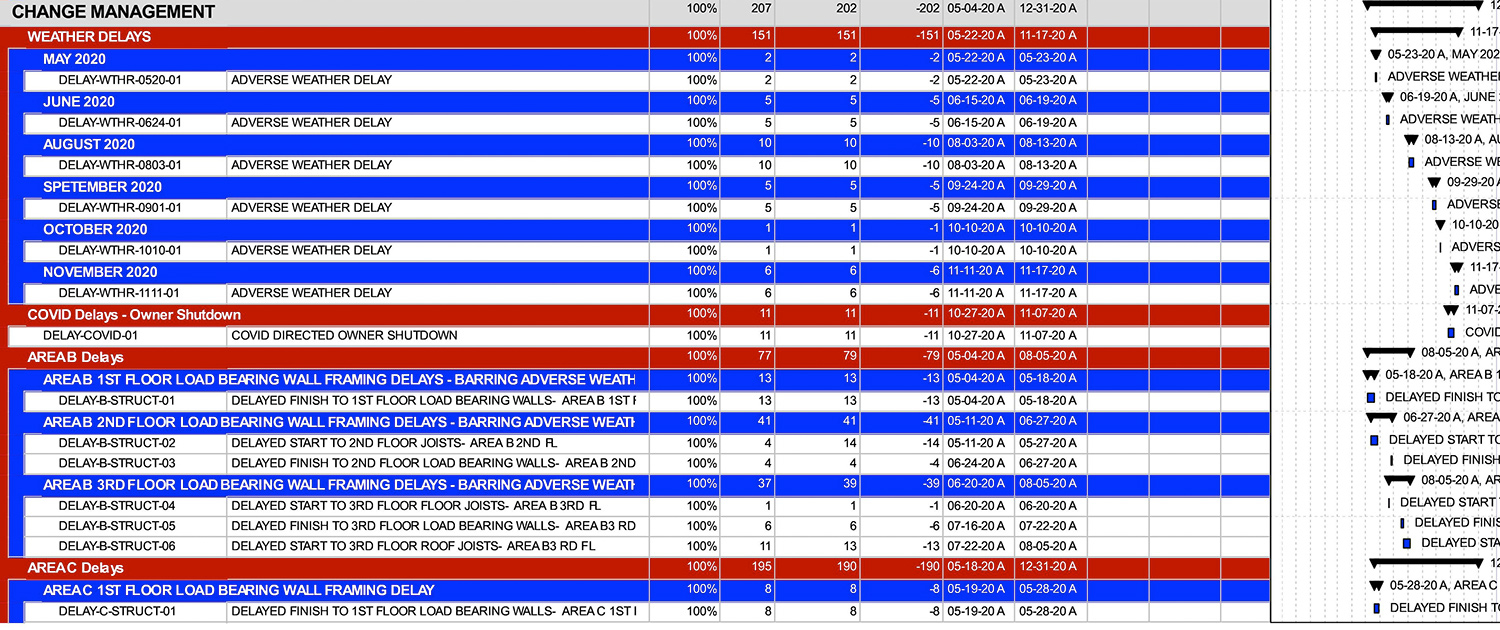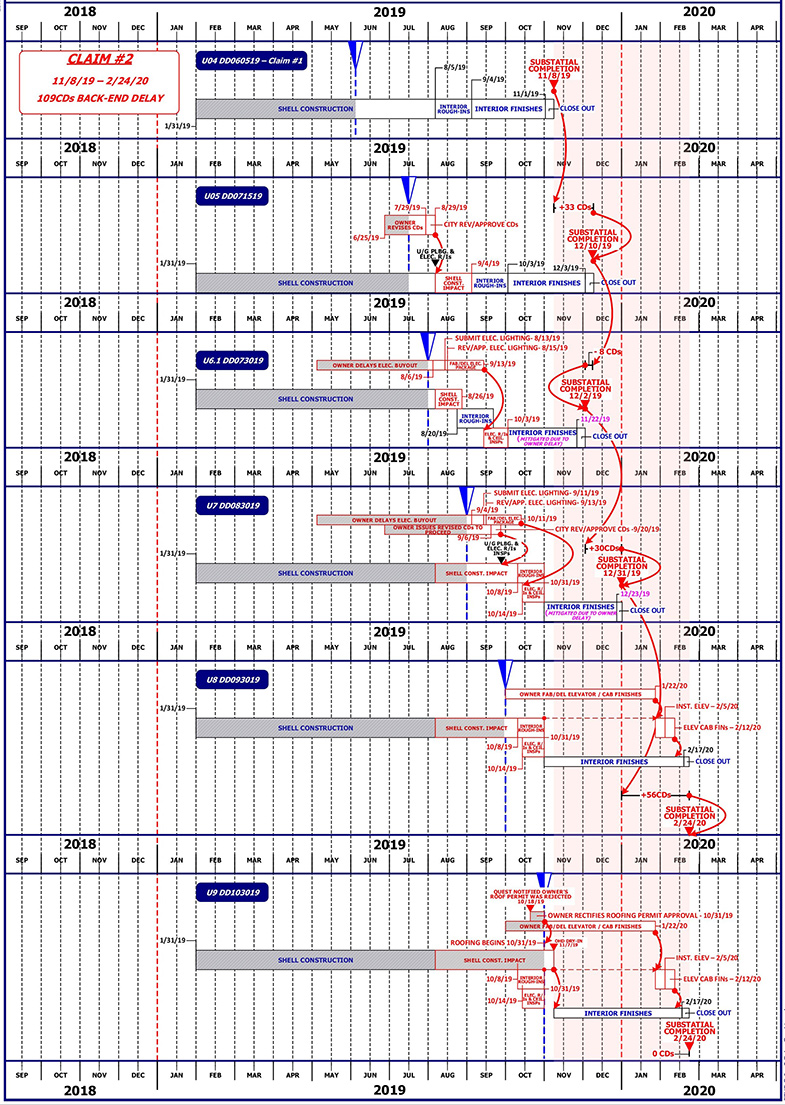The integration and communication of change management delays on the project’s critical paths require a schedule management acumen that’s accurate in substantiation and effective in conveying the iterative changes of the project’s delays from one schedule update to the next. When comparing our process for this crucial schedule maintenance function to third-party schedules we routinely review as owner’s representatives we find that too many lack both the necessary best practices and artfulness required to execute this function and typically at a cost to the contractor.
That’s why our standard schedule management process comprises a robust change management WBS section that chronicles a host of delays routinely spanning permitting, scope changes, design issues, subcontractor production delays and weather, among others. In each schedule update, we work diligently with the project management team to integrate project delays both as sequenced fragnets to their corresponding tasks and with written notations to tasks and milestones that over time build a narrative of controlling delays in the digital schedule file. We regularly ask the project management team to cite dates and sources of incorporated delays with references to RFIs, OAC meetings, collateral documentation and other controlling digital correspondence, mindful to ensure the delay narrative’s integrity in the likely event of third-parties’ future review of schedule files.
Following each schedule update and in instances where delay is driven by factors outside of contractor’s control we furnish the project management team with schedule reports that convey delay impacts on the project’s completion and support the contractor’s request for time. However, contractors sometimes prefer to refrain from time extensions requests on each occasion a schedule update indicates delay is outside of contractor’s control and opt to reserve these issues for later reconciliation. Alternatively, contractors may request time extensions on the basis of supporting schedule reports but may not receive the requested time from owners. These and other scenarios prompt the need for us to maintain a communicative overall project delay exhibit that captures the impacts of various project delays from one schedule update to the next. This overall delay exhibit alleviates the parties from having to recall what happened when and to ponder the ramifications of select delays on the project’s completion. It furnishes project stakeholders with a clear turn-key visual instrument illustrating delay chronology and is engineered to save the parties time and expense to negotiate settlements.
Project Delays Exhibit
How can we help your
project’s success?
Click the button to the right or give us a call
to find out how we can be of service.




